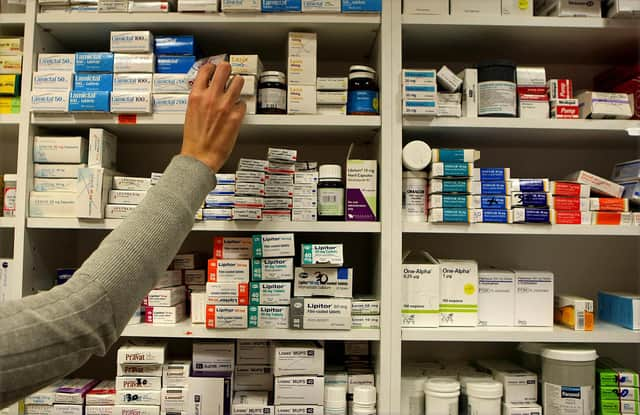Fall in methadone prescriptions for opiate addiction in Bristol, north Somerset and south Gloucestershire


GPs in Bristol, north Somerset and south Gloucestershire gave fewer methadone prescriptions to treat opioid addiction last year, new figures show.
Methadone, marketed under the brand name Physeptone, is a synthetic opioid used to help people who have a heroin addiction by reducing withdrawal symptoms. The drug is only available on prescription from GPs or drug treatment services.
Advertisement
Hide AdAdvertisement
Hide AdMethadone is addictive, like all opioids. When used for detox, a treatment plan includes details for gradually reducing then stopping doses of it.
Figures from the NHS OpenPrescribing service show 45,315 prescriptions for methadone were given out by GPs in the former NHS Bristol, North Somerset and South Gloucestershire CCG to treat substance dependence. This was down from 51,691 the year before.
However, it was up from five years prior when 45,283 prescriptions were handed out in 2018.
This data shows the number of prescriptions given by GPs, rather than patients – a single patient may have been prescribed a drug multiple times over the same year.
Advertisement
Hide AdAdvertisement
Hide AdIt is in contrast to the trend across England where prescriptions for the opioid have fallen 18% in the last five years – from about 634,00 GP prescriptions in 2018 to 518,00 last year.
The total cost to the NHS for these prescriptions over the past five years was £18.4 million, with last year costing around £3.3 million.
Martin Blakebrough, chief executive of charity Kaleidoscope which runs drug and alcohol services, said the drop in GP prescriptions for methadone is concerning news.
He added the stigma surrounding drug use means many GPs are reluctant to help opiate users.
Advertisement
Hide AdAdvertisement
Hide AdHe said: "The big problem from my perspective however is that where possible a person's GP should be able to support their patients and too many are avoiding this responsibility and in effect discharging that responsibility to drug agencies who are primarily tasked in helping those who do not engage in mainstream services."
The NHS said GPs and pharmacists have cut all opioid prescriptions in England, including methadone, 450,000 in under four years.
It comes as the NHS announced a new action plan to crack down on the overuse of potentially addictive medicines such as sleeping pills and benzodiazepine.
Professor Tony Avery, NHS England Prescribing national clinical director said medicines offers a range of tools to medical staff in caring and treating patients.
Advertisement
Hide AdAdvertisement
Hide Ad“However, we need to be alert to the risks of some medicines, particularly when used over a long period of time, and the framework we are publishing today empowers local services to work with people to ensure they are being effectively supported when a medicine is no longer providing overall benefit,” he added.
Health minister Neil O'Brien said tackling the overprescribing of opioids is important. “Some opioids are highly addictive and have the potential to cause significant harm,” he said.